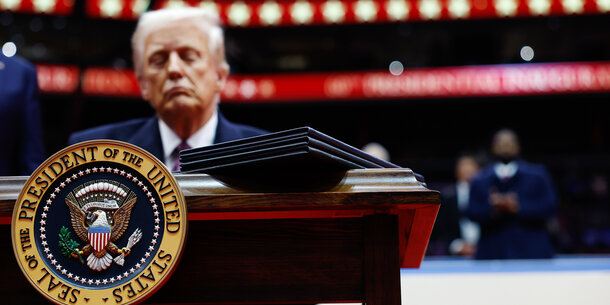The Brennan Center has filed an amicus brief on behalf of three American historians in Relentless v. Department of Commerce. This case raises the critical question whether the U.S. Supreme Court should discard “Chevron deference,” a long-standing rule that the federal courts should give federal agencies wide discretion in carrying out their work.
Federal administrative agencies—such as the Food and Drug Administration, the Securities and Exchange Commission, the Environmental Protection Agency or U.S. Postal Service—are necessary institutions in modern society. They protect our environment, safeguard our public health, defend consumers and employees, ensure fairness in our economy, and more. And they do so by deploying the rigor and skill of highly-trained government workers. These workers are often subject-matter experts in their policy areas and they exercise significant discretion to accomplish their assigned duties.
Relentless v. Department of Commerce and its companion case, Loper Bright Enterprises v. Raimondo, seek to limit agency power by asking the Supreme Court to overturn the long-standing Chevron doctrine, a rule of judicial decision-making which instructs judges to generally refrain from second-guessing expert administrators in how they interpret the laws Congress passes.
How does this case—which involves a dispute over a National Marine Fisheries Service rule that governs commercial fishing—implicate American history?
The corporations that brought these cases attempt to justify eliminating Chevron deference on the ground that it violates early understandings of the separation of powers and the federal judiciary’s role in overseeing agency decision-making.
The Brennan Center’s brief—filed on behalf of historians Gautham Rao, Richard John, and Jane Manners—challenges this historical argument. First, it counters the idea that early American history should determine how these cases should be resolved. In other words, the historians resist originalism. Second, the Brennan Center’s brief provides a corrective to the historical facts the corporations present, asking the Court to consider a more accurate narrative that incorporates the whole of American history.
The brief demonstrates that there is an enduring practice of federal courts deferring to agency interpretations of the law. In the eighteenth and nineteenth centuries, there was limited judicial review of agency action. Meanwhile, early administrative actors—from customs officers to tax collectors—had substantial discretion to implement the law and routinely exercised that discretion on many significant matters. This added up to significant deference to agencies as a matter of course. That tradition has continued deep into the twentieth century as courts grappled with the complexities of the modern administrative state.
The brief also challenges the notion that administrative agencies cannot interpret statutes because that is the sole responsibility of the courts. This rigidly formulaic approach to separation of powers is inconsistent with the Founders’ understanding. The Founders intended certain powers to be shareable among the different branches, including the power to interpret and implement statutes. Historical practice—from the Founding to the present day—confirms this intention.
For more on the issues posed by the challenges to Chevron deference, see recent Brennan Center articles from Brennan Center President Michael Waldman and experts Maya Kornberg and Martha Kinsella.






